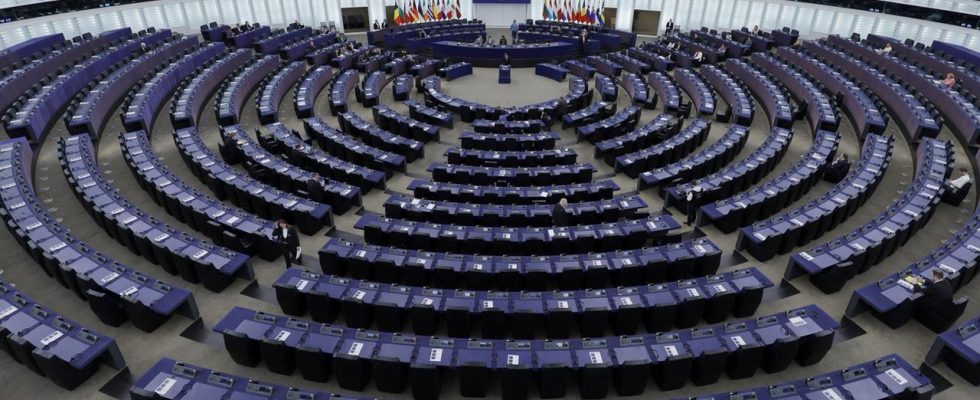News and backgrounds
European elections 2024
faq
The new European Parliament will be elected at the beginning of June. But who actually chooses whom? And how exactly does it all work? The most important questions and answers at a glance.
When are the European elections?
There is actually no European election. Because elections are held separately in all 27 member states of the European Union – and not even on the same day. In order to take into account the electoral traditions in different states, the elections will begin on Thursday, June 6th and end on Sunday, June 9th.
In the Netherlands, for example, voting always takes place on Thursdays, whereas in Germany it takes place on Sundays.
That is why those eligible in this country are called to vote on June 9th; in some other countries already on the days from June 6th. There is also the option of voting by post in advance. But the following applies to everyone: results will only be published when the polling stations in the last country are closed.
Who can vote?
Who is entitled to vote is determined by the law of the respective member state in which the election is held. In Germany, eligible voters aged 16 and over are allowed to cast their votes for the first time in this year’s European elections. Previously, you had to be 18 years old to vote. All Germans are entitled to vote within the meaning of Article 116 Paragraph 1 of the Basic Law.
In addition, all nationals of other EU member states (Union citizens) who live in Germany and have been registered on the electoral roll by April are allowed to vote. You can decide whether you want to vote in Germany or in your home country – both are not possible. Anyone who lives in the EU and is not a Union citizen is not allowed to vote.
Who will be elected?
720 representatives will be elected in the European elections. Each country sends a certain number of parliamentarians depending on its size. The election is contested by national, not Europe-wide, parties.
The European Parliament still has 705 members. Since the population numbers have risen sharply in some EU countries, the number of seats is being increased. France, Spain and the Netherlands will each have two more MPs than before. Belgium, Denmark, Ireland, Latvia, Austria, Poland, Finland, Slovenia and Slovakia each have an additional seat.
As before, 96 MEPs will be elected in Germany, while only six will be elected in Luxembourg, Malta and Cyprus. The Federal Election Committee has approved 35 parties and political associations for the election – 33 are running nationwide, plus the CDU in all federal states except Bavaria and the CSU, which is only running in Bavaria. In Germany there are 34 parties on the ballot paper. However, the order varies from state to state and depends on the parties’ performance in the 2019 European elections.
How is voting done?
EU electoral law requires that all member states use the proportional representation system. This means: the more votes a party gets, the more representatives it can send to the European Parliament.
Unlike the federal election, for example, each eligible voter only has one vote. Candidates cannot be elected directly, only parties that have previously defined a so-called closed list of candidates, the order of which cannot be changed – unlike in local elections, for example.
Is there a barrier clause?
In federal and state elections in Germany there is usually a threshold clause, the so-called five percent hurdle. This means that parties are only taken into account in the distribution of seats if they have received at least five percent of the second votes. This is intended to prevent parliament from fragmenting.
Until 2009, the five percent threshold also applied to European elections in Germany. The Federal Constitutional Court has declared this barrier clause and also the three percent threshold that was briefly introduced but never applied to be unconstitutional. Since the European elections in 2014, there is no longer a threshold clause for European elections in Germany. However, they exist in 16 of the 27 Member States.
Who is currently sitting for Germany? European Parliament?
Due to the elimination of the threshold clause, 0.7 percent of the votes were enough in 2019 to get a seat for Germany. 14 different parties sent representatives to the European Parliament. Most are the CDU (23), followed by Alliance 90/The Greens (21) and the SPD (16).
Voter turnout in Germany was 61.4 percent, significantly higher than in the previous European elections, in which significantly less than 50 percent of those eligible to vote regularly cast their votes.
In the European Parliament, members of parliament from different countries form political groups based on their political affiliation. There are currently seven political groups in the European Parliament. The largest is the European People’s Party EPP (Christian Democrats) group with 177 parliamentarians. 51 MPs are currently non-attached, including three from Germany.

